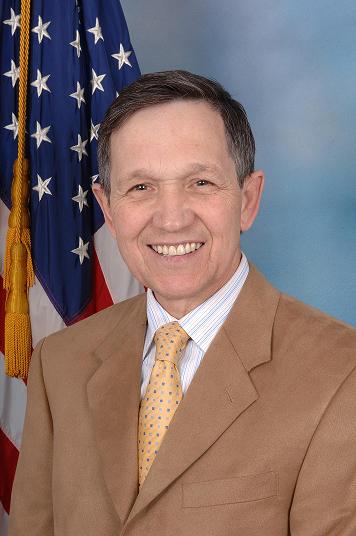"I oppose H.R. 2454, the American Clean Energy and Security Act of 2009. The reason is simple. It won't address the problem. In fact, it might make the problem worse.
photo by Rob Kall; Factory on Delaware River, Burlington, NJ
"It sets targets that are too weak, especially in the short term, and sets about meeting those targets through Enron-style accounting methods. It gives new life to one of the primary sources of the problem that should be on its way out-- coal -- by giving it record subsidies. And it is rounded out with massive corporate giveaways at taxpayer expense. There is $60 billion for a single technology which may or may not work, but which enables coal power plants to keep warming the planet at least another 20 years.
"Worse, the bill locks us into a framework that will fail. Science tells us that immediately is not soon enough to begin repairing the planet. Waiting another decade or more will virtually guarantee catastrophic levels of warming. But the bill does not require any greenhouse gas reductions beyond current levels until 2030.
"Today's bill is a fragile compromise, which leads some to claim that we cannot do better. I respectfully submit that not only can we do better; we have no choice but to do better. Indeed, if we pass a bill that only creates the illusion of addressing the problem, we walk away with only an illusion. The price for that illusion is the opportunity to take substantive action.
"There are several aspects of the bill that are problematic.
1. Overall targets are too weak. The bill is predicated on a target atmospheric concentration of 450 parts per million, a target that is arguably justified in the latest report from the Intergovernmental Panel on Climate Change, but which is already out of date. Recent science suggests 350 parts per million is necessary to help us avoid the worst effects of global warming.
2. The offsets undercut the emission reductions. Offsets allow polluters to keep polluting; they are rife with fraudulent claims of emissions reduction; they create environmental, social, and economic unintended adverse consequences; and they codify and endorse the idea that polluters do not have to make sacrifices to solve the problem.
3. It kicks the can down the road. By requiring the bulk of the emissions to be carried out in the long term and requiring few reductions in the short term, we are not only failing to take the action when it is needed to address rapid global warming, but we are assuming the long term targets will remain intact.
4. EPA's authority to help reduce greenhouse gas emissions in the short- to medium-term is rescinded. It is our best defense against a new generation of coal power plants. There is no room for coal as a major energy source in a future with a stable climate.
5. Nuclear power is given a lifeline instead of phasing it out. Nuclear power is far more expensive, has major safety issues including a near release in my own home state in 2002, and there is still no resolution to the waste problem. A recent study by Dr. Mark Cooper showed that it would cost $1.9 trillion to $4.1 trillion more over the life of 100 new nuclear reactors than to generate the same amount of electricity from energy efficiency and renewables.
6. Dirty Coal is given a lifeline instead of phasing it out. Coal-based energy destroys entire mountains, kills and injures workers at higher rates than most other occupations, decimates ecologically sensitive wetlands and streams, creates ponds of ash that are so toxic the Department of Homeland Security will not disclose their locations for fear of their potential to become a terrorist weapon, and fouls the air and water with sulfur oxides, nitrogen oxides, particulates, mercury, polycyclic aromatic hydrocarbons, and thousands of other toxic compounds that cause asthma, birth defects, learning disabilities, and pulmonary and cardiac problems for starters. In contrast, several times more jobs are yielded by renewable energy investments than comparable coal investments.
(Note: You can view every article as one long page if you sign up as an Advocate Member, or higher).





